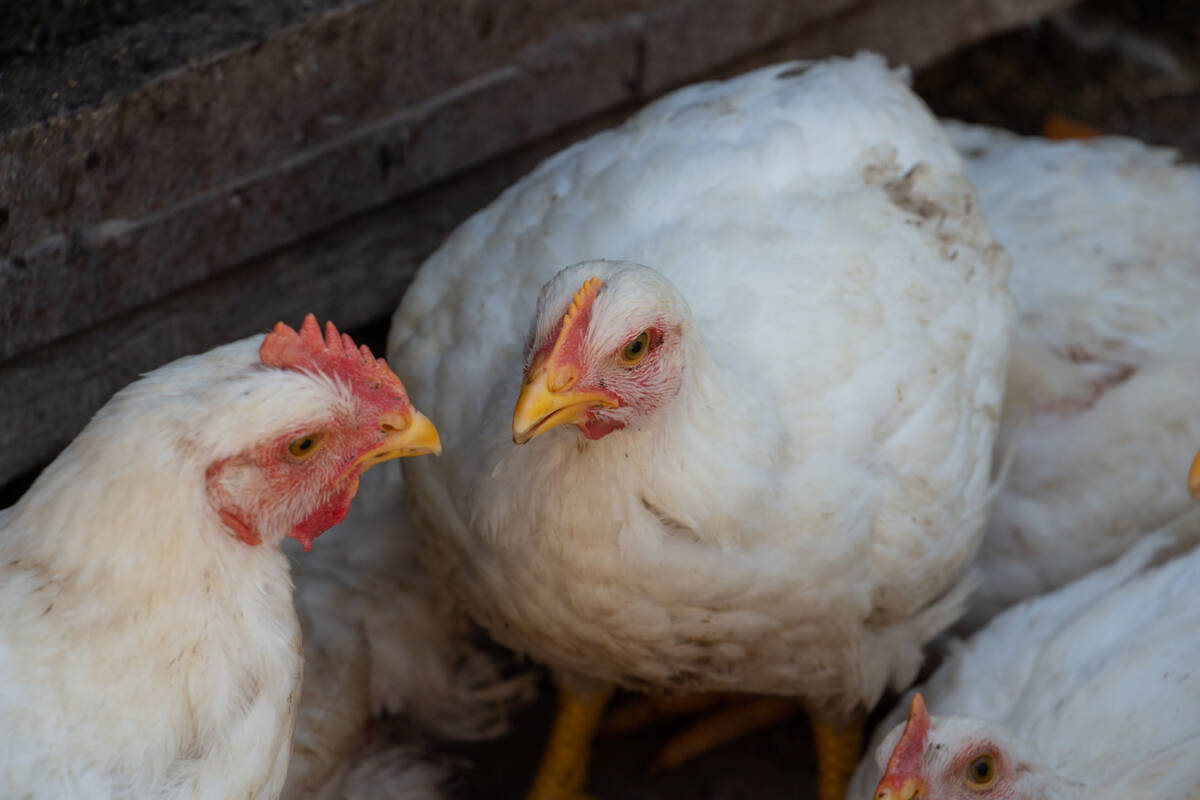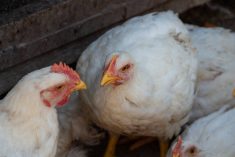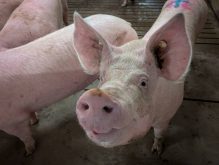Blood testing of livestock at pork plants to monitor Canada’s hog herd for three major swine diseases will soon be done on an ongoing, rather than occasional, basis.
The Canadian Food Inspection Agency announced Tuesday that blood samples will be “regularly collected and tested” starting this month for porcine brucellosis, trichinellosis and pseudorabies, where previously the agency would run “periodic, large-scale surveys.”
The agency said it will begin collecting blood samples from “mature” animals at Canadian slaughter facilities this month, and noted the testing process “will not disrupt regular animal marketing activities.”
Read Also

Chicken, eggs benefit from demand for economical protein
Strong demand for protein and status as an economical alternative to beef bodes well for chicken and egg demand in 2026 according to recent analysis from Farm Credit Canada.
“Additional sample collection points” may also be identified as the surveillance system is further developed, CFIA said.
“The enhanced surveillance system will allow Canada to confidently demonstrate freedom from porcine brucellosis, trichinellosis and pseudorabies,” which in turn is important to maintain market access for Canadian swine, swine semen and pork products, CFIA said.
A boosted surveillance system will also help protect human health, as brucellosis and trichinellosis can be transmitted to people, the agency said.
The Canadian Pork Council, Canadian Swine Health Board and Canadian Pork International have been “actively involved” in developing the stepped-up surveillance system. Provincial authorities are partnering with CFIA and the industry in the campaign.
Not in Canada
Unlike the forms of the disease which affect mainly cattle, reindeer and caribou, porcine brucellosis has never been reported in livestock or wildlife in Canada.
Brucellosis bacteria spread through the blood and lymphatic systems of infected animals, hitting the reproductive organs, mammary glands and joints and potentially causing abortions, weakened offspring and infertility. People can be infected by all forms of the bacteria.
Canada’s swine herd is also considered today to be trichinellosis-free. Canada’s last case of trichinellosis in swine, without human involvement, was confirmed in 1996 in a pig reared outdoors.
Caused by small roundworms of the trichinella species, trichinellosis in animals does not produce easily recognized clinical signs of infection and often goes undiagnosed. If left unchecked in infected people, trichnellosis can cause inflammation of the heart muscle and the brain.
Pseudorabies, also known as Aujeszky’s disease, is a highly contagious herpes virus causing neurological and respiratory damage in hogs and “sporadically” jumping to cattle, sheep and other non-human species.
Cases of pseudorabies have been reported in most parts of the globe except in Canada, Australia, Africa and Greenland. Domestic swine in the U.S. have been considered free of the virus since 2004 but it’s known to be present there in feral swine.














